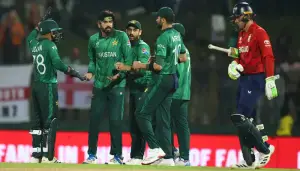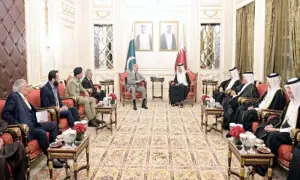How Pakistan not only beat India to space, but helped put man on the moon
3 min readMore than 60 years ago, Pakistan achieved something that put it ahead of not only India but also most of the Muslim and the developing world.
In June 1962, Pakistan became the third country in Asia and tenth country overall to launch a rocket into space. And the story is quite unbelieveable.
On an official visit to the United States, President John F Kennedy told Pakistan President Ayub Khan that NASA hoped to put a man on the moon by the end of the decade. But help would be needed from certain countries including Pakistan.
Dr Abdus Salam who was then head of the Atomic Energy Commission was called for a meeting at NASA. He also roped in 27-year old Tariq Mustafa, who was then working for the US Atomic Energy Commission, according to Suparco history documents and Mustafa.
NASA told the two about the ambition to put man on the moon and that the rockets would have to be placed in the Earth’s orbit before being thrusted towards the moon.
This meant that they needed data about every point of the planet’s atmosphere and an area above the Indian ocean was a ‘black hole’ in terms of data. Knowledge was needed about the conditions 30,000ft above this area before NASA undertook its exploration.
Pakistan, with its southern end sitting meeting the Indian ocean was in luck. The US offered support in exchange for raw data collected.
27-year-old Tariq Mustafa was put in charge of the operation. President Ayub himself found a military range in Sonmiani, Balochistan that could become a launch pad.
Mustafa assembled a team of five people including himself. Also included was Mr Saleem Mahmood, an electronics specialist, M Rehmatullah, a director at the Meteorological department, Flight Lieutenant A Z Farooqi, a retired Air Force officer and communications specialist, and Sikandar Zaman, a mechanical engineer.
The team underwent a training at NASA before returning home. They had a total of nine months to get the job done. The sodium vapour experiment had to be done before the monsoon clouds arrived in June.
The team set tow work in the Balochistan heat. The heat would get so intense that they could not often work during the day time. So the party would work early morning to noon and then begin again at 4pm to 9 or 10 pm.
Not just that, the launch had to be made in a small window during the day - not before sunset nad not long after it either.
In an interview, Mustafa later revealed that a circuit error almost delayed the launch on the fateful day. But the five brilliant men dashed to the launcher and figured it out.
Pakistan’s first rocket Rehbar-I was launched just after sunset on June 7, 1962. The mission was successful and helped record the required data.
India was also onbaord with the same project for NASA and started their project in the Thumba range soon after Pakistan. But it took them another year to launch their rocket.
Sources:
For the latest news, follow us on Twitter @Aaj_Urdu. We are also on Facebook, Instagram and YouTube.

























Comments are closed on this story.